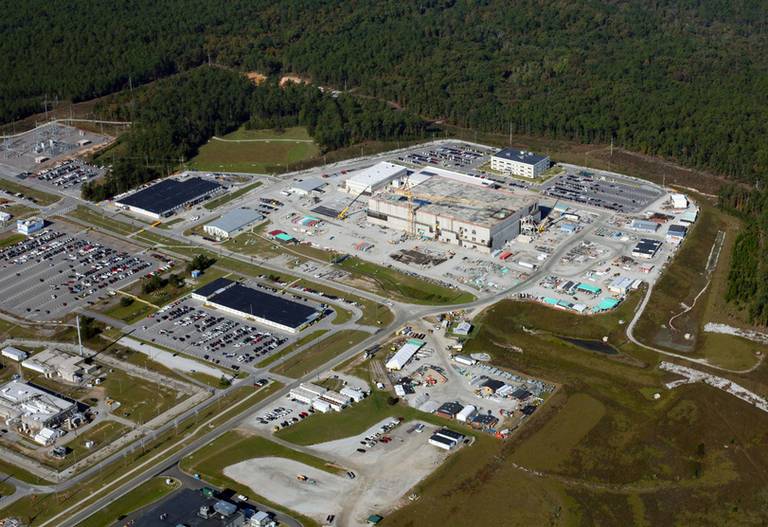“As construction problems mounted, costs rose, and schedules slipped, (and) defendants hid the true status of the project,” the indictment said.
“…Delays and cost overruns — hidden by SCANA officials from the public and state regulators — eventually doomed the effort, making it one of the largest business failures in South Carolina history.”
BY SAMMY FRETWELL | April 22, 2021 thestate.com
A coalition of environmental groups from the southern and western United States is threatening to sue the federal government over plans for plutonium pit factories in South Carolina and New Mexico that would produce components for additional atomic weapons.
In a letter Tuesday to U.S. Energy Secretary Jennifer Granholm, a non-profit law firm said the government should prepare an extensive environmental study before deciding to establish pit production factories at the Savannah River Site near Aiken and the Los Alamos site near Santa Fe, N.M.
African American and Native American communities have been hurt by past activities at the nuclear sites, and President Joe Biden’s administration should consider how the production factories would add to that burden, according to the South Carolina Environmental Law Project, a non-profit legal service in South Carolina.
Nine environmental groups, including SRS Watch, the Gullah Geechee Sea Island Coalition, Tri-Valley Cares of California and Nuclear Watch New Mexico, are among those seeking more study.
The law project’s letter also was sent to the National Nuclear Security Administration, a division of the energy department.
“The plans of DOE and NNSA to expand this production program will saddle the already-burdened communities represented by these groups with a significant amount of nuclear waste and pollution,’’ the letter from lawyer Leslie Lenhardt said.
Her letter said the pit production efforts are in “complete contravention’’ to an executive order by President Biden that federal agencies weigh the impact their policies and plans have on disadvantaged communities.
SRS Watch, Tri-Valley Cares and Nuclear Watch New Mexico intend to take legal action within 60 days if the government doesn’t reconsider its decision not to conduct the extensive environmental review the groups want. The study they are seeking is known as a programmatic environmental impact statement.
“The federal government appears ready to embark on this significant change in U.S. nuclear policy without studying the cross-country risks and environmental justice impacts, which indicates that the health and safety of workers and downwind and downriver communities are not worth the consideration or protection they deserve,’’ Lenhardt said in a news release Wednesday morning.
Both the Department of Energy and the NNSA declined comment on the letter about the pit factories, which in South Carolina alone could produce 1,000 jobs. SRS boosters say the plant is needed to help the economy and provide for the national defense.
The pit factory in South Carolina would be built at the site of an abandoned mixed oxide fuel plant construction project that cost taxpayers billions of dollars before it was deemed too expensive and unnecessary. The estimated price of renovating the site for a pit plant is $4.6 billion, the news release said.
In New Mexico, existing pit production facilities would be modified to make more pits, key components of nuclear weapons.
Regardless of whether a suit is filed, President Biden’s administration is expected to review the federal effort to establish new pit factories for the nation’s nuclear arsenal.
According to plans, a total of 80 pits would be made annually, 50 at SRS. The remainder would be made at Los Alamos. The idea is to bolster the nation’s existing nuclear stockpile with fresh pits, but also to provide ingredients for new types of nuclear weapons.
If the factories are built, material would be sent from Pantex weapons site in Texas to the Savannah River Site and Los Alamos. The material would be reprocessed, and fresh pits would be returned to Pantex for insertion into nuclear weapons.
As much as 7.5 tons of plutonium could be brought to South Carolina alone, anti-nuclear groups say. This follows years of disputes of how to get rid of plutonium for the mixed oxide fuel factory that failed.

